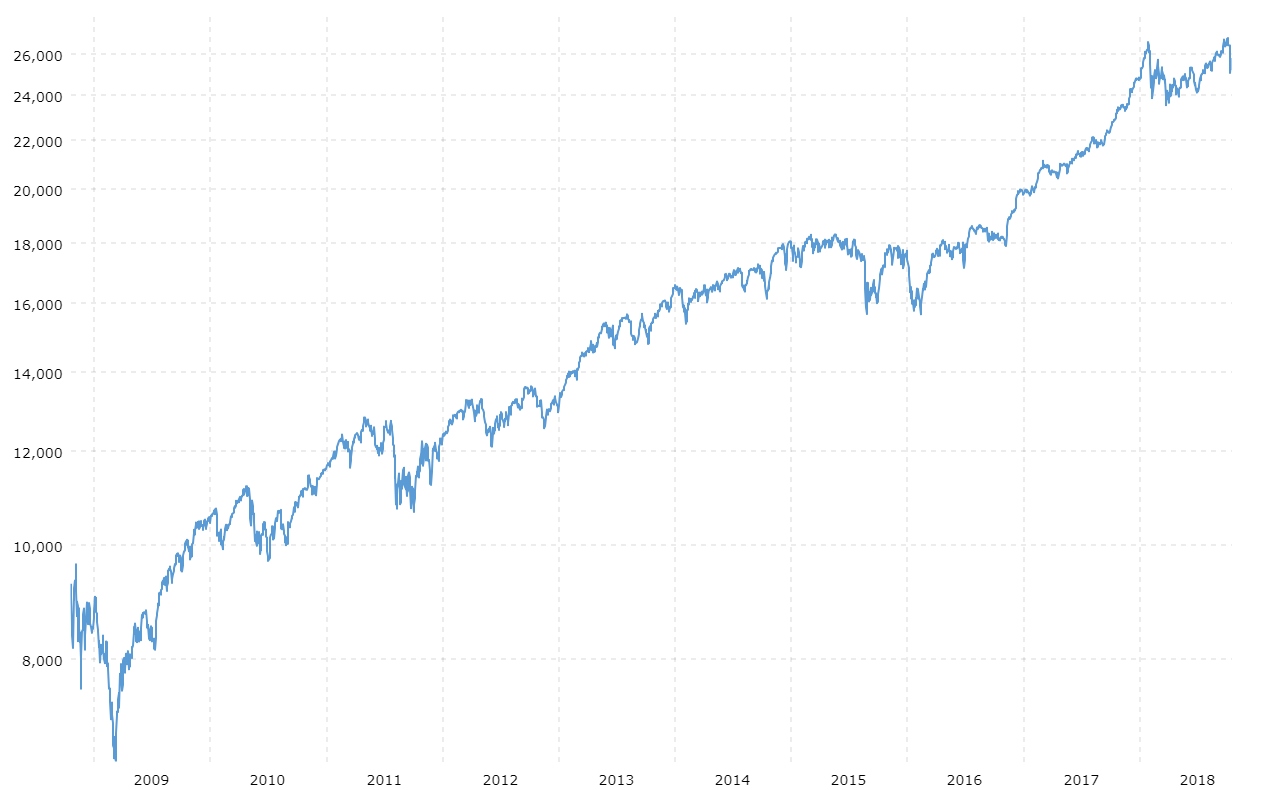The Dow Jones Industrial Average (DJIA), often simply called the Dow, is one of the most widely-watched stock market indexes in the world. It’s a price-weighted average of 30 large, publicly-owned companies based in the United States. These companies are leaders in their respective industries, and their performance is a barometer of the overall health of the U.S. economy.
What Does the Dow Measure?
The Dow measures the combined stock price changes of its 30 component companies. It’s important to note that it’s a price-weighted index, meaning that companies with higher stock prices have a greater impact on the index’s overall value.
How to Interpret the Dow

Upward Trend: A rising Dow generally indicates positive market sentiment, economic growth, and investor confidence.
Why is the Dow Important?
1. Market Sentiment: The Dow is a key indicator of investor sentiment. When the Dow rises, it suggests that investors are optimistic about the future. Conversely, a falling Dow can signal pessimism.
2. Economic Health: The Dow is often seen as a barometer of the overall health of the U.S. economy. A strong Dow can indicate a thriving economy, while a weak Dow may signal economic troubles.
3. Investment Strategy: Many investors use the Dow as a benchmark for their portfolios. They may compare the performance of their investments to the Dow to gauge their success.
4. News and Media: The Dow is frequently mentioned in news reports, financial analysis programs, and online media. It’s a common topic of discussion among investors and financial experts.
How to Invest in the Dow
There are several ways to invest in the Dow:
1. Individual Stocks: You can purchase shares of individual companies that are part of the Dow. However, this requires careful research and analysis of each company.
2. Dow Jones Index Funds: Index funds track the performance of the Dow. By investing in a Dow Jones index fund, you can gain exposure to all 30 component stocks in a single investment.
3. Dow Jones ETFs: Exchange-Traded Funds (ETFs) that track the Dow offer a similar investment strategy to index funds. ETFs can be bought and sold throughout the trading day, just like individual stocks.
Factors Affecting the Dow
Several factors can influence the Dow’s performance:
1. Economic Indicators: Economic indicators such as GDP growth, unemployment rates, and inflation can impact the Dow.
2. Corporate Earnings: Strong corporate earnings reports can boost the Dow, while weak earnings can weigh it down.
3. Interest Rates: Changes in interest rates can affect the overall market, including the Dow.
4. Global Events: Global events, such as political instability, natural disasters, and trade tensions, can impact investor sentiment and, consequently, the Dow.
5. Market Sentiment: Investor psychology plays a significant role in the Dow’s performance. Fear, greed, and herd mentality can drive short-term fluctuations.
Conclusion
The Dow Jones Industrial Average is a valuable tool for understanding the U.S. stock market and the overall economy. By following the Dow and understanding the factors that influence it, investors can make informed decisions about their investments. However, it’s important to remember that the Dow is just one indicator, and it’s essential to consider other factors when making investment decisions.


/cdn.vox-cdn.com/uploads/chorus_asset/file/25378171/2139238696.jpg?w=200&resize=200,112&ssl=1)


.jpg?auto=webp&format=pjpg&width=3840&quality=60&w=200&resize=200,112&ssl=1)
